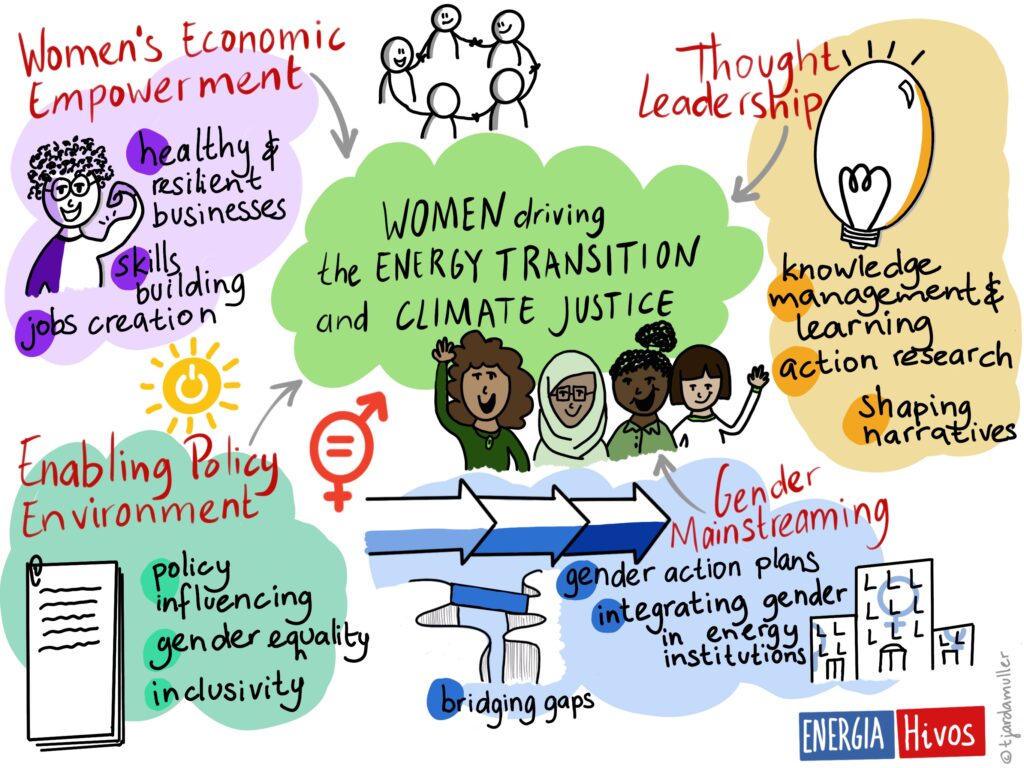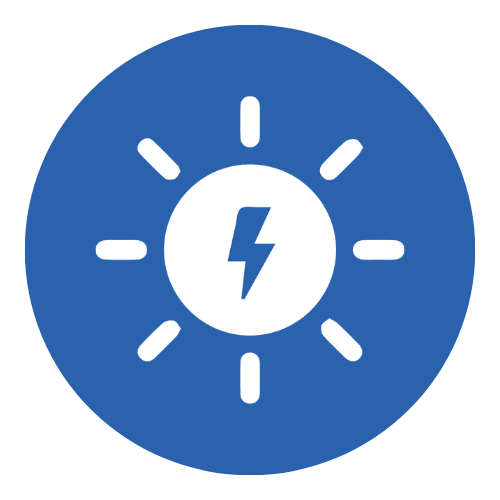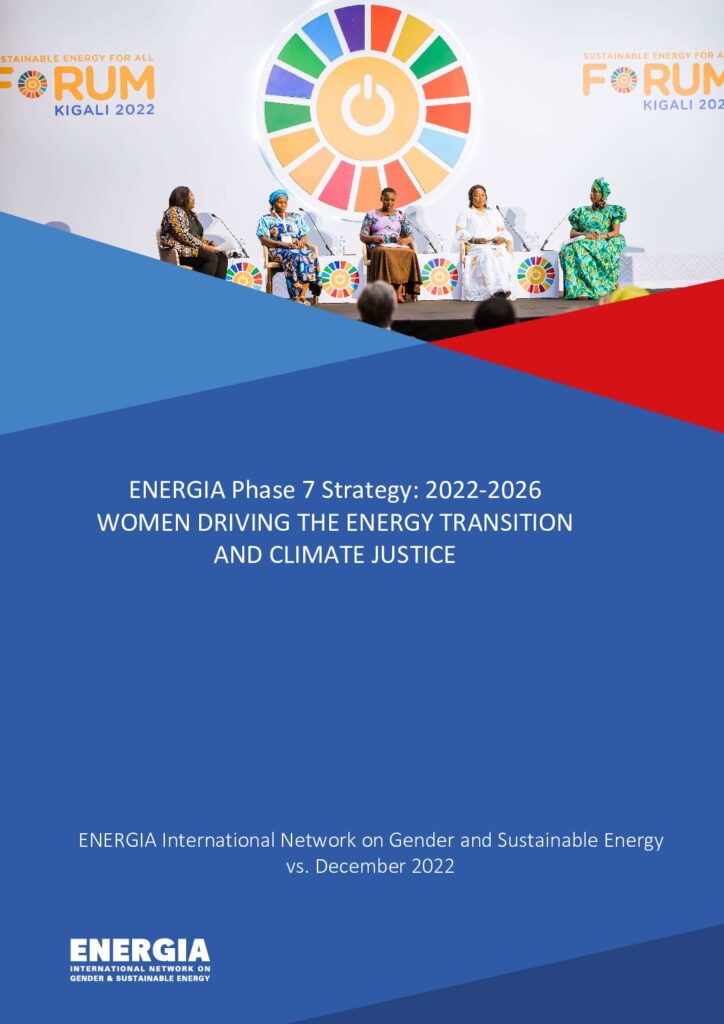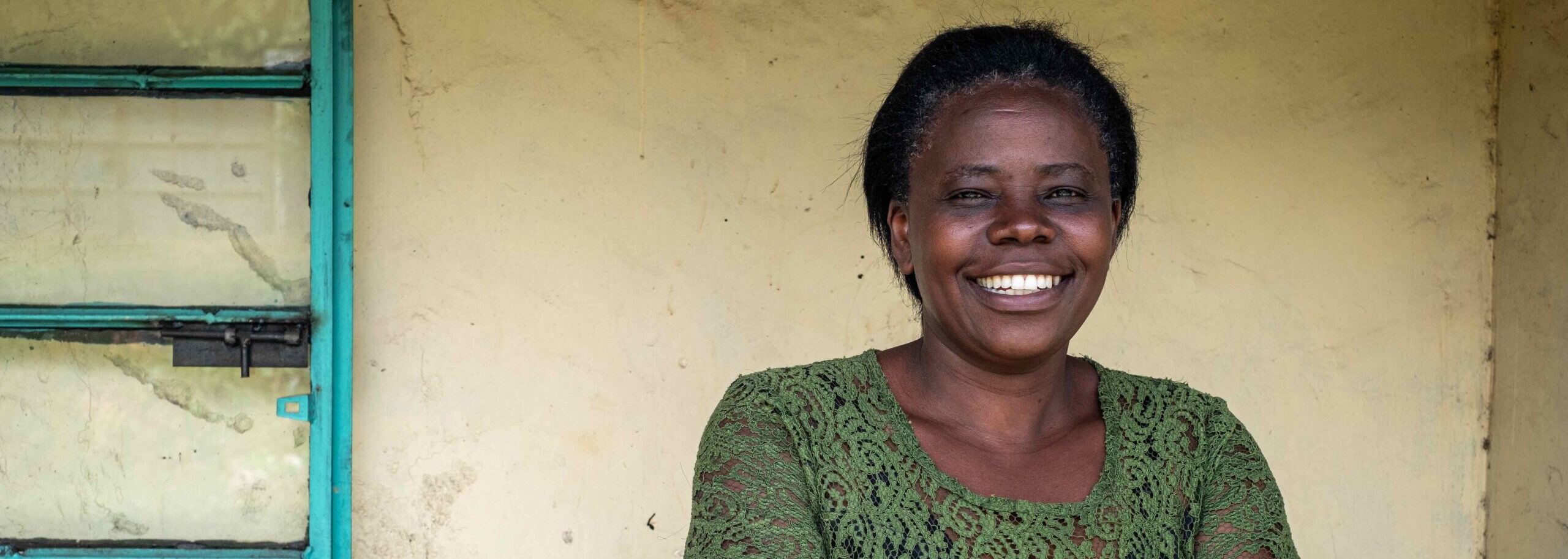A holistic approach
At ENERGIA, we take a holistic approach to drive change in the energy sector.

Our strategy combines:

Training, mentoring and creating an enabling market environment to increase women’s agency and entrepreneurship within energy value chains.

Awareness creation and thought leadership to promote understanding of energy equality issues and innovative approaches to energy access.

Lobbying and advocacy to mainstream gender perspectives and ensure women’s distinct needs are included in energy projects, programs and policies.

Building collaborative partnerships and developing networks across sectors to share knowledge and amplify our efforts towards a more sustainable, equal and inclusive energy future.
ENERGIA’s Strategic Plan (2022 – 2026)
Our strategic plan (also known as ‘Phase 7’ of our main funding program, ‘Women Driving the Energy Transition and Climate Justice’) aims to ensure that women have an equal opportunity to lead, participate in and benefit from clean energy access and a just and inclusive energy transition as an essential right to development.
The strategy reflects our focus on gender-transformative approaches, climate justice and human rights. It details our aims to make a unique and significant contribution to achieving universal energy access and climate justice in a manner that is fair, inclusive and gender transformative.
We aim to achieve this by placing women, who are most affected and vulnerable to the impacts of energy poverty and climate change, at the very center of sustainable energy and climate solutions. View or download our strategic plan here.

Our Theory of Change
Our Theory of Change demonstrates the results we aim to achieve, as well as the interventions and their outcomes that will lead to these. It outlines the key assumptions, processes and approaches we use to adapt our programming and make it as effective and impactful as possible. We measure and track progress towards our objectives and provide updates to the relevant partners and funders.
We work with the following core groups to achieve our objectives:
Women in last-mile communities
We support women in last-mile communities to operate clean energy businesses and use clean energy for productive purposes. We help strengthen their resilience and agency through access to finance, business development training, mentorship and market and network linkages.
Young women and men
Our work also supports young women and men who benefit from increased employment opportunities in the clean energy sector through training, coaching and linking with renewable energy companies.
Renewable energy product suppliers and distributors
These businesses benefit from increased sales by engaging women entrepreneurs in distribution and after-sales service. We also support businesses to mainstream gender into their institutions and operations.
NGOs, local financial institutions and renewable energy companies
We support a wide range of organizations to gain a greater understanding of womens’ roles in clean energy value chains and in productive uses of clean energy; helping them build partnerships for gender equality in clean energy markets and develop climate resilient strategies.
National and sub-national agencies
Our support extends to national and sub-national agencies, including ministries of energy, women’s development and environment, as well as electrification agencies, electricity utilities and regulatory commissions. We support these organisations to adopt gender priorities for their clean energy and climate policies, plans and investments, alongside our advocacy work to improve the policy environment for gender equality and women’s empowerment.
Decision-makers engaged in global processes
As part of our advocacy work, we support decision makers and policy makers, including governments, donors, multilateral organizations and development finance institutions, who gain better understanding and evidence to support and justify further initiatives (funding, programs and commitments) for women’s engagement in the clean energy sector and climate action.
View our projects and our key impacts to learn more.
Our values and guiding principles
The ENERGIA network embodies the core values of empowerment, equality and human rights; inclusivity and flexibility; and building strong partnerships and networks based on mutual learning, creativity and innovation.
Empowerment, equality and human rights
We value equal opportunities for all and aim to empower women and marginalized groups as key agents of change. Our rights-based approach tackles structural barriers and power imbalances that contribute to gender discrimination. We also acknowledge that gender is not strictly binary and that women and men are not two homogeneous groups.
Inclusive, diverse and flexible partnerships
To achieve our aims of gender equality and inclusive, universal, clean energy access, we rely on cultivating strong partnerships with diverse organizations. We build these partnerships on trust and mutual respect. They allow for flexible, creative approaches, drawing on each partners’ unique talents and expertise to develop effective approaches that drive meaningful, lasting change.
A tailored approach
We adapt our approach to diverse local contexts by closely collaborating with community members, amplifying their diverse voices. We ensure the models we develop for mainstreaming gender perspectives in energy policies and programs are aligned with local contexts and respect regional, cultural and systemic differences.
Intersectional approaches
Our interventions and partnerships recognize the diversity within and between rightsholder groups. We seek to ensure everyone has a voice and the resources necessary to address the inequalities they may face.
Engaging men as partners in gender equality
We believe in engaging with all genders, including boys and men, to achieve gender equality. This is critical for enabling and maintaining change – to shift the dominant norms about gender and challenge patriarchal beliefs and practices, and pave the way for more equal communities and societies.
Our partners
The ENERGIA network consists of core partners, united in our shared belief that women must be empowered as change agents in the energy sector. Working as a network enables us to combine our expertise, resources and insights to amplify our impacts.
Our governance
ENERGIA operates as a program within Hivos, an international non-governmental organization based in the Netherlands. Hivos provides the legal framework within which ENERGIA’s work is funded and implemented.


